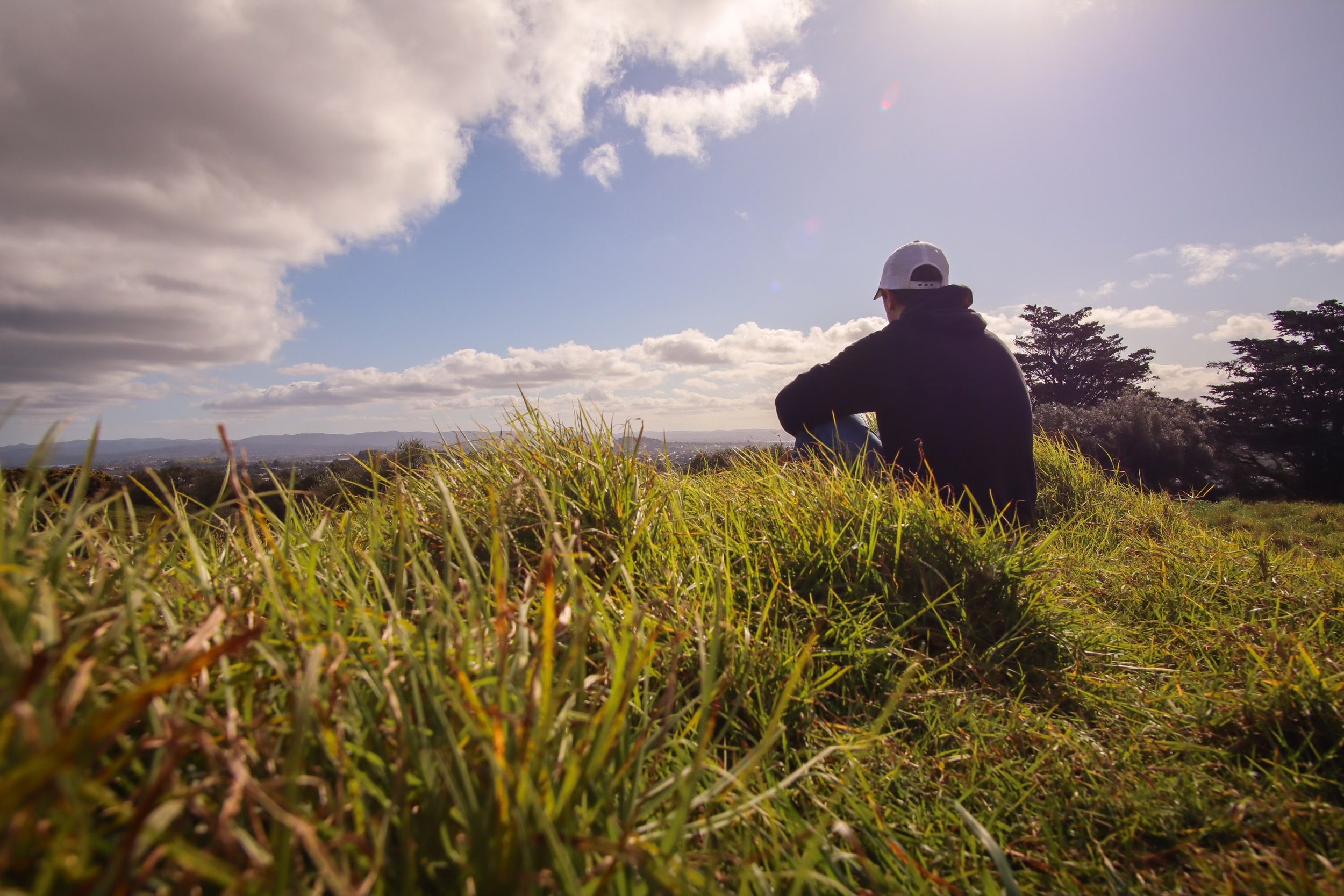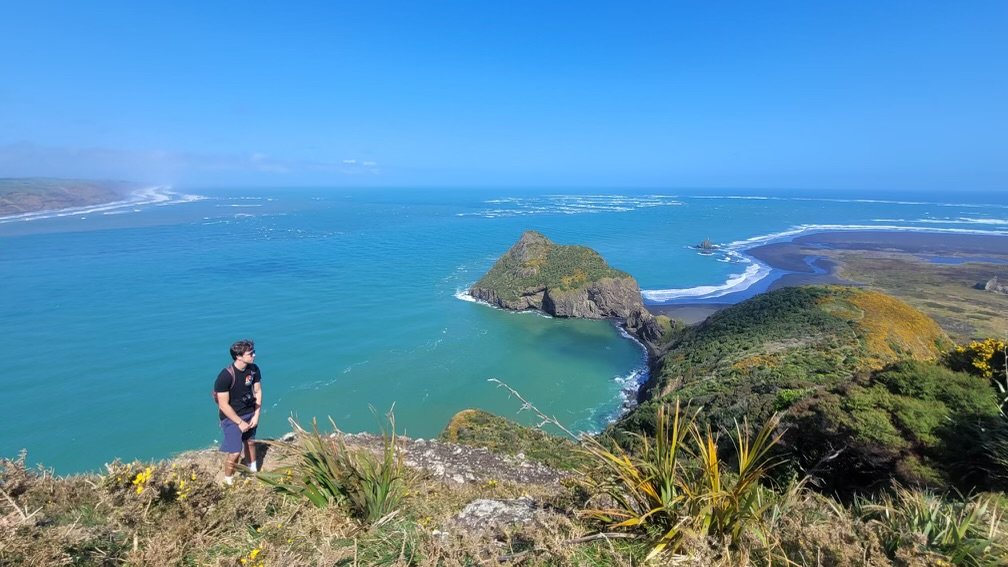School away from Home: How to Make the Most of your Exchange
Story by Brian Valencia | Design by Destiny Gardner
You're finally arriving at your destination. It's been hours since you took off from home. Your legs feel like jelly, but there’s no time for that now; you need to grab your suitcase and get off the plane. It hasn’t hit you yet.
Once off the plane, you begin to notice some significant differences. The landscape you were used to is now replaced with something unfamiliar. It takes your eyes a few seconds to adjust to this new environment, before it finally hits you. You’re studying abroad.
Studying abroad is not something everyone gets to experience. So, what is it like, and what are some tips that can help students prepare and acclimate to this unique lifestyle?
Learning To Communicate
Traveling across the world means having to adapt to your environment. Having an open mind while communicating with others helps to broaden horizons, presenting opportunities where they might not be expected. Communication isn’t just about the words and phrases, but how they’re used. Good communication can make a difficult task simple.
Ethan Cook is a junior CWU business administration major. Cook traveled to New Zealand to study abroad for a quarter during fall of 2023. He emphasized the importance of communication during his travels.
“I had to walk an hour down the street to another bus station and I met this old Chinese man, he didn't speak any English,” Cook says. “By the end of the walk, we were best friends.”
Communicating is such a common task, it is easy to forget how great of a tool it is. It can help travelers prepare for the unexpected.
When studying abroad, don’t shy away from uncomfortable situations. Preventing or avoiding communication can create a barrier that could interfere with opportunities and experiences that may present themselves. Traveling abroad offers a vast range of opportunities, so it's important to keep an open mind and remember to take advantage of every moment.
One key way to make studying abroad easier is getting to know people. Articles and media published online about a country or location might not always be accurate, so making friends when traveling will help to verify information and make the trip more authentic.
Environmental science senior, Benjamin Lombardi, studied in Dubland, Scotland for a year. One of his biggest tips is to make friends while abroad.
“Definitely have a local tell you around, especially if it's a friend,” Lombardi says. “You get their side of it. They're not trying to overhype certain things, they know what the best thing is to show you.”
Lombardi grew up in Washington, but unexpectedly made a German friend during his time abroad who has since been to his home state. “He absolutely loves the Seahawks. It's the funniest thing ever. He’s gone to a game and was wearing that Seahawks hat,” Lombardi says. Put yourself out there, and you may be surprised with how much you have in common with a stranger from a different location.
It might feel uncomfortable trying to make friends, but it's important to remove that mental block and just start talking to new people you meet. It will make your time more enjoyable. Mason Williams, a fifth year student majoring in Physical Education and School Health [PESH] at CWU, tells his story about making friends abroad.
Williams traveled to Ireland for 24 days. During a night out, he unexpectedly made best friends with four people from Croatia. “None of them had met before they came to Ireland. They all started working at the same hotel,” Williams says. “All of them play professional soccer there, and they’re all from the same home town in Croatia.”
“I'm happy that I made friends going there, because if I went alone, I feel like it'd be such a different experience and I would have enjoyed it less,” Williams says.
Be Prepared
Knowing how to communicate respectfully aids the process of talking with others. Associate Director of Education Abroad at CWU, Steve Cook, has traveled to over two dozen countries. He highlights that language barriers can be another challenge when studying in a different country.
Cook traveled to China and shares a story from his first night there, eating a food he does not enjoy: meat tendon. “It was literally the tendon from a cow that had been stewed, essentially. So we have this gelatinous kind of texture to it. How do I eat this without making a big deal?” Cook says.
One of Cook’s biggest tips is to educate yourself on the place you’re visiting. Going to a new country can be an overwhelming process, but research can make that road less bumpy.
“Reading up on the history, reading up on a culture, paying attention to the news as much as you can, with whatever language skills you have,” Cook advises. “It can help kind of reduce the impact.”
Being respectful can be aided by doing preliminary research. Before studying abroad, take the time to learn about the common customs of the country you’ll be traveling to.
Learning appropriate and respectful social norms and common customs can be very helpful to travelers while abroad. Things such as common phrases and body language can prepare travelers for potential interactions. Keep in mind that what is considered normal in the United States might not be normal everywhere.
Cook also emphasizes the importance of being able to contextualize your surroundings. For example, taking a class on Mexican art before visiting a Mexican art museum may help visitors better understand its meaning.
A New Sense Of Identity
Studying abroad can help broaden a traveler's perspective. Cook talks about how keeping an open mind can create a shift in a person's priorities. "You're constantly reevaluating what you think you believe and what you think you put importance on, because you're seeing things through the lens of another culture," says Cook.
Identity is subjective. The only one who can change that, is the individual themselves; but going somewhere out of your comfort zone can make you reevaluate your sense of identity.
“I've never been an American until I was somewhere surrounded by non-Americans, and then I am an American,” Lombardi says. He mentions how it's not a bad thing to take a step back and see yourself through a different lens. “I've got this identity now that I've always had in some respects, but now it's my big identity coming from all these other people,” Lombardi explains.
Coming to terms with oneself is a big part of self-evolution. Everyone will experience this differently when studying abroad.
Unity Across Cultures
As different as another country may be, there can still be a sense of familiarity. Williams says that outside of his home country, not everything is completely out of the ordinary. “It was just like a different version of everything. Not too similar, but not vastly different.”
Lombardi noticed how people across the world might have the same taste. “They'd watch the same movies and TV shows, especially music. It was a lot of American music,” Lombardi recalls.
Regardless of how different an individual is from those who live in the country they visit, it is a privilege to experience a new side of life. It's important to remember that aside from key differences, everyone is relatively the same. Everyone is living on the same rock, so we should strive to feel unity. Everyone deserves empathy and respect.
Having a deeper understanding of how vast the world is helps people better understand how to navigate life as humans. It is important to acknowledge, appreciate and admire the beauty in versatility.





